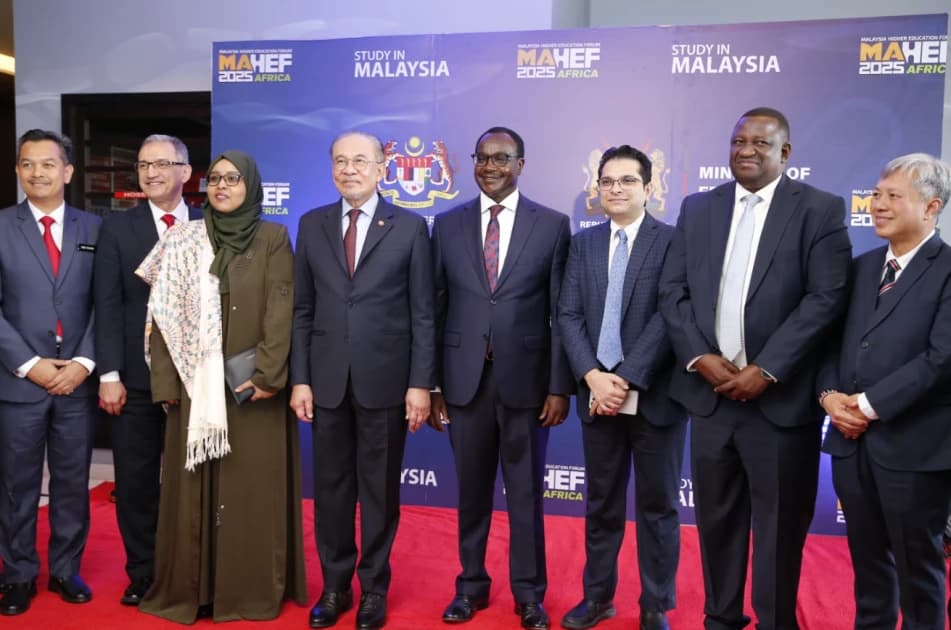We're loading the full news article for you. This includes the article content, images, author information, and related articles.
The new agreement aims to bolster Kenya's expertise in science and technology by creating new opportunities for student exchanges, joint research, and scholarships, directly impacting local university programs and graduate skills.

Kenya and Malaysia signed a landmark Memorandum of Understanding (MoU) on Monday, November 24, 2025, to significantly enhance cooperation in higher education and technical training. The agreement, confirmed during the inaugural Malaysia-Africa Higher Education Forum (MAHEF) in Nairobi, is set to create a robust framework for collaboration in critical areas for Kenya's development agenda.
The pact was announced by Kenya's Education Cabinet Secretary, Julius Migos Ogamba, and is part of a series of bilateral agreements inked during the official state visit of Malaysian Prime Minister Anwar Ibrahim, which also commemorated 60 years of diplomatic relations between the two nations.
Speaking at the forum, themed “Intensifying Internationalisation in the Context of the Global South Agenda,” CS Ogamba stated that the MoU will formalize and guide partnerships in academic mobility, joint research programs, scholarships, and capacity building for institutions. “We are looking forward to conducting and concluding an MoU in Higher Education and TVET between the two nations, which will form a solid framework to guide our partnership,” Ogamba said on Monday.
The agreement is strategically aligned with Kenya's goal of strengthening its human capital, particularly in Science, Technology, Engineering, and Mathematics (STEM), research, and innovation. For Kenyan students and academics, this translates into more accessible opportunities for international exposure, postgraduate studies, and participation in globally relevant research projects. Malaysia has become an increasingly popular destination for Kenyan students, valued for its high-quality, English-language programs and relative affordability compared to Western universities.
The collaboration will also focus on Technical and Vocational Education and Training (TVET), a key priority for the Kenyan government in addressing youth unemployment and skills gaps. By leveraging Malaysia's advanced industrial and technological expertise, Kenya aims to enhance its own TVET curriculum and training infrastructure.
Furthermore, the MoU provides for the mutual recognition of qualifications, which will streamline processes for students and professionals seeking to have their credentials acknowledged in either country, fostering greater talent mobility. According to Dr. Anesee Bin Ibrahim, Malaysia's Secretary-General in the Ministry of Higher Education, the partnership will “explore approaches for developing joint academic programmes tailored to global needs” and strengthen quality assurance frameworks.
The education pact was a cornerstone of Prime Minister Anwar Ibrahim's visit, which also saw agreements on a Bilateral Air Services Agreement, tourism cooperation, and a city-to-city partnership between Nairobi and Kuala Lumpur. President William Ruto highlighted that these agreements signal the beginning of a deeper strategic partnership for mutual benefit.
Prime Minister Anwar noted that the collaboration could extend to establishing an Institute of African Studies in Malaysia in partnership with Kenya, creating a vital channel for information sharing. This initiative underscores a commitment to fostering academic and cultural understanding beyond purely technical fields.
The MAHEF forum, organized by Education Malaysia Global Services (EMGS), brought together academics, students, and university administrators from Malaysia and seven African nations, including Kenya, Somalia, and Ethiopia, to forge stronger ties within the Global South. Malaysia aims to attract 250,000 international students by 2025, and this agreement positions Kenya as a key partner in achieving that goal while simultaneously advancing its own educational objectives.
The implementation of this MoU will be closely watched by stakeholders in Kenya's education sector, who anticipate it will provide a significant boost to the country's knowledge economy and produce graduates better equipped for the demands of the 21st-century workforce.
Keep the conversation in one place—threads here stay linked to the story and in the forums.
Sign in to start a discussion
Start a conversation about this story and keep it linked here.
Other hot threads
E-sports and Gaming Community in Kenya
Active 9 months ago
The Role of Technology in Modern Agriculture (AgriTech)
Active 9 months ago
Popular Recreational Activities Across Counties
Active 9 months ago
Investing in Youth Sports Development Programs
Active 9 months ago
Key figures and persons of interest featured in this article